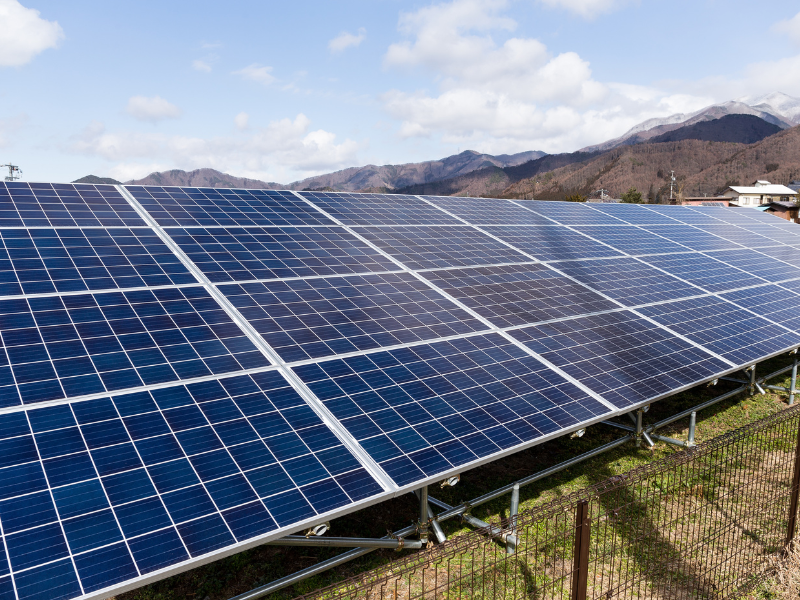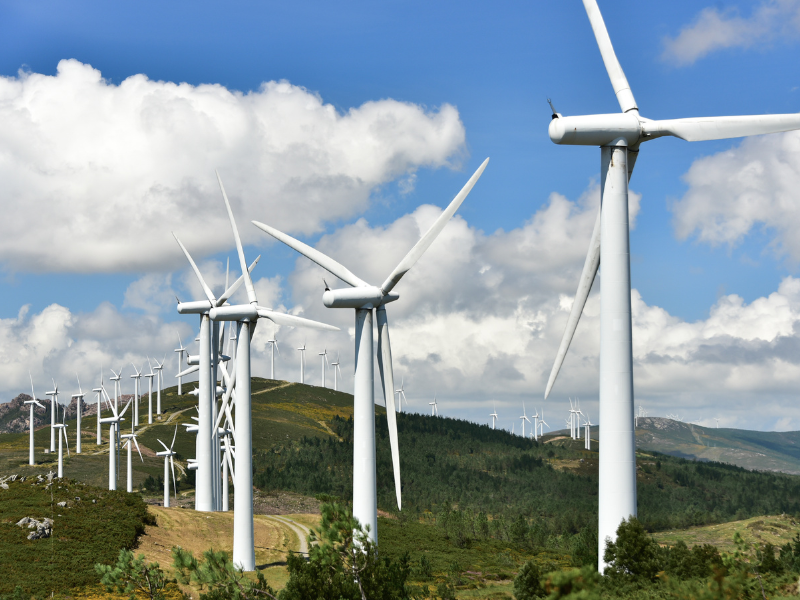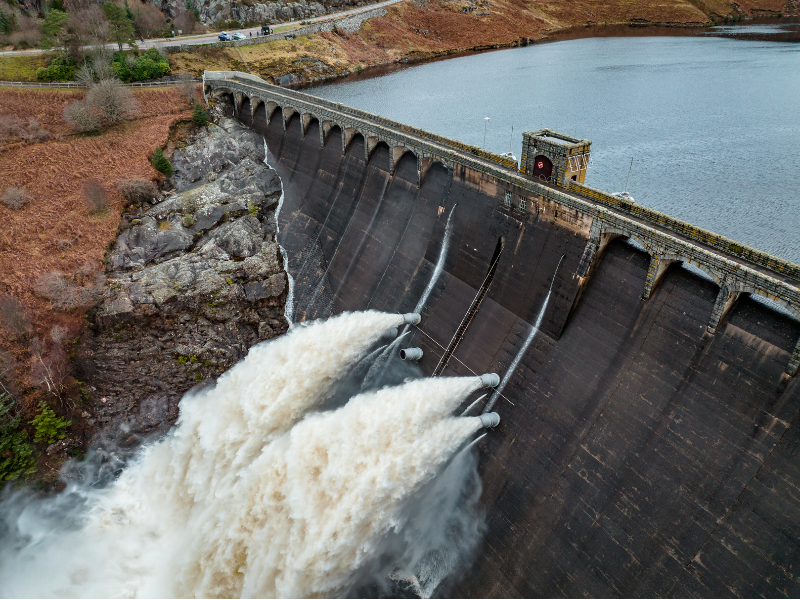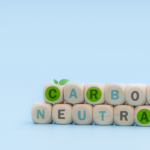Ecologically sound power generation is a significant topic in today’s world, as it plays a crucial role in mitigating climate change and reducing environmental impact. This long-form article aims to provide comprehensive insights into various aspects of ecologically sound power generation. From the definition and importance to different forms, advantages, challenges, and future prospects, this article covers it all.
What is Ecologically Sound Power Generation?
Ecologically sound power generation refers to the production of electricity using renewable and sustainable energy sources that have minimal impact on the environment. It aims to reduce greenhouse gas emissions, mitigate climate change, and promote a more sustainable and cleaner energy future. By harnessing natural resources like sunlight, wind, water, and geothermal heat, ecologically sound power generation ensures a greener and more sustainable energy mix.
The Importance of Ecologically Sound Power Generation
Ecologically sound power generation is of paramount importance due to its numerous environmental, economic, and social benefits. By shifting towards renewable energy sources, we can reduce our dependence on fossil fuels, decrease carbon emissions, and mitigate the adverse effects of climate change. Furthermore, ecologically sound power generation promotes energy security, drives innovation and economic growth, and creates job opportunities in the renewable energy sector.
Different Forms of Ecologically Sound Power Generation
Solar Power Generation

Solar power generation harnesses the energy from the sun to produce electricity. Photovoltaic cells convert sunlight directly into electrical energy, while concentrating solar power systems focus sunlight to generate heat, which is then used to produce electricity. Solar power is abundant, widely available, and has minimal environmental impact, making it a popular choice for ecologically sound power generation.
Wind Power Generation

Wind power generation utilizes the kinetic energy of the wind to generate electricity. Wind turbines convert the wind’s rotational motion into electrical energy through the use of blades and a generator. As a clean and renewable energy source, wind power generation has seen significant growth worldwide and is commonly used in onshore and offshore locations.
Hydroelectric Power Generation

Hydroelectric power generation harnesses the power of flowing or falling water to generate electricity. It involves the construction of dams or water reservoirs, which create a water head or a controlled flow of water. This water is then used to turn turbines connected to generators, producing clean and renewable electricity. Hydroelectric power is a mature and reliable form of ecologically sound power generation.
Geothermal Power Generation

Geothermal power generation utilizes the heat from within the Earth to produce electricity. Natural geothermal resources, such as hot springs and geysers, are harnessed through wells drilled into the ground. The steam or hot water extracted is used to power turbines and generate electricity. Geothermal power is a reliable and sustainable form of ecologically sound power generation, especially in regions with high geothermal activity.
Biomass Power Generation

Biomass power generation uses organic materials, such as agricultural residues, wood, and dedicated energy crops, to produce electricity. Biomass is burned in a boiler or gasified to produce heat, which is then used to drive a turbine connected to a generator. The use of biomass as a renewable energy source helps reduce waste and dependence on fossil fuels. However, careful management and sustainability practices are essential to ensure ecologically sound biomass power generation.
Advantages of Ecologically Sound Power Generation
- Reduced carbon emissions and mitigated climate change: Ecologically sound power generation relies on renewable energy sources that emit little to no greenhouse gases, reducing carbon emissions and contributing to global efforts in mitigating climate change.
- Energy security and reduced dependence on fossil fuels: By diversifying the energy mix and relying on renewable energy sources, ecologically sound power generation enhances energy security and reduces dependence on fossil fuels, which are finite and contribute to geopolitical tensions.
- Job creation and economic growth: The transition to ecologically sound power generation creates job opportunities in the renewable energy sector, driving economic growth and sustainable development. Investments in clean energy projects spur innovation and technology advancements, further stimulating economic activity.
- Enhanced air and water quality: Unlike traditional power generation methods that rely on the combustion of fossil fuels, ecologically sound power generation produces little to no air pollutants and reduces water pollution associated with cooling systems in traditional power plants.
- Sustainable utilization of natural resources: Ecologically sound power generation harnesses renewable resources such as sunlight, wind, water, and geothermal heat, ensuring the sustainable utilization of natural resources without depleting them for future generations.
- Community empowerment and decentralization: Some forms of ecologically sound power generation, such as solar panels and small wind turbines, can be installed at the community or individual level, empowering local communities and enhancing energy independence.
- Technological advancements and innovation: Continued investment in ecologically sound power generation encourages the development of innovative technologies and solutions, driving advancements in energy storage, grid integration, and efficiency improvements.
Challenges and Solutions in Ecologically Sound Power Generation
Integration into Existing Power Grids
The integration of ecologically sound power generation into existing power grids poses challenges due to the intermittent nature of some renewable energy sources. However, advanced grid management systems, energy storage technologies, and smart grids enable the efficient integration and management of renewable energy, ensuring a stable and reliable electricity supply.
Cost Considerations
Although the cost of renewable energy technologies has significantly decreased over the years, upfront investment costs for ecologically sound power generation projects can still be substantial. However, various financial incentives, feed-in tariffs, and tax credits are available to promote the adoption of renewable energy and make it more economically viable.
Environmental Impact Assessment
Ecologically sound power generation projects require thorough environmental impact assessments to mitigate any potential negative effects on local ecosystems, wildlife, and habitats. These assessments identify potential risks and provide mitigation measures to minimize environmental impact and ensure responsible development.
Infrastructure Development
Expanding ecologically sound power generation infrastructure requires the development of new transmission lines, interconnectors, and energy storage facilities. Planning and constructing the necessary infrastructure in an environmentally sensitive manner is essential to minimize disruption to ecosystems and communities.
Government Initiatives and Policies Promoting Ecologically Sound Power Generation
Governments worldwide have implemented various initiatives and policies to incentivize and promote ecologically sound power generation. Feed-in tariffs, renewable portfolio standards, renewable energy targets, and tax incentives are some examples of policies aimed at accelerating the adoption of renewable energy sources. International agreements like the Paris Agreement also set targets for reducing greenhouse gas emissions and increasing the share of renewables in the global energy mix.
Case Studies of Successful Ecologically Sound Power Generation Projects
Solar Power Plants in India
India has made significant strides in solar power generation, with projects such as the Kurnool Ultra Mega Solar Park and the Bhadla Solar Park. These solar power plants have a combined capacity of several gigawatts and have contributed to India’s renewable energy goals, reducing carbon emissions and providing clean electricity to millions of people.
Wind Farms in Denmark
Denmark is a global leader in wind power generation, with wind farms dotting its coastal areas and offshore locations. Projects like the Horns Rev and Anholt offshore wind farms have showcased the country’s commitment to renewable energy and have played a vital role in reducing carbon emissions and promoting energy independence.
Geothermal Power Plants in Iceland
Iceland, with its abundant geothermal resources, has harnessed the power of geothermal energy for power generation. The Hellisheidi and Nesjavellir geothermal power plants provide clean electricity and harness the country’s natural heat for district heating systems, reducing the reliance on fossil fuels for heating and electricity generation.
Biomass Power Plants in Brazil
Brazil has a thriving biomass power generation sector, utilizing agricultural residues, such as sugarcane bagasse and wood pellets, to produce electricity. Biomass power plants like the Sao Paulo Biomass Project have contributed to Brazil’s renewable energy goals, reducing waste and diversifying the country’s energy mix.
Innovations and Latest Trends in Ecologically Sound Power Generation
Floating Solar Farms
Floating solar farms leverage water bodies such as reservoirs, ponds, and lakes to install solar panels. These floating photovoltaic systems not only generate clean electricity but also reduce water evaporation, improve water quality, and provide additional benefits like fish habitat creation.
Offshore Wind Farms
Offshore wind farms are gaining popularity due to their potential for harnessing strong and consistent winds in coastal areas. As technology advances, floating wind turbines are becoming an emerging trend, allowing for deeper water installation and tapping into previously untapped offshore wind resources.
Advanced Battery Storage Systems
The development of advanced battery storage systems enables the efficient utilization of electricity generated from intermittent renewable sources. Energy storage technologies such as lithium-ion batteries, flow batteries, and thermal storage systems help balance the supply and demand of electricity, improving grid stability and enabling increased integration of renewables.
Artificial Intelligence in Power Generation
Artificial intelligence (AI) and machine learning algorithms are being increasingly applied in ecologically sound power generation for optimizing energy production, predicting energy demand, and improving overall system efficiency. AI algorithms can analyze vast amounts of data and make real-time adjustments, making renewable energy generation more efficient and effective.
Decentralized Energy Systems
Decentralized energy systems promote local energy production and consumption, reducing transmission losses and enhancing energy resilience. Microgrids, community solar projects, and distributed renewable energy generation enable individual buildings and communities to become self-sufficient and contribute to the overall energy grid.
Future Prospects and Potential Growth in Ecologically Sound Power Generation
Ecologically sound power generation is expected to continue growing rapidly in the coming years, driven by decreasing costs, technological advancements, and ambitious renewable energy targets set by governments worldwide. As the world transitions towards a greener energy future, the potential for job creation, economic growth, and environmental stewardship through sustainable power generation is immense.
Frequently Asked Questions
Can ecologically sound power generation completely replace traditional forms of power generation?
While ecologically sound power generation has the potential to significantly reduce the reliance on traditional forms of power generation, a complete replacement is currently not feasible. The intermittent nature of renewable energy sources and the need for advanced grid management systems pose challenges. However, as technology improves and energy storage capabilities increase, the share of ecologically sound power generation in the overall energy mix is expected to grow.
What are the main advantages of solar power generation?
Solar power generation has numerous advantages, including its abundance, widespread availability, and minimal environmental impact. It provides a renewable and clean energy source, reduces reliance on fossil fuels, mitigates climate change, and promotes energy independence. Solar power systems are modular and can be installed at various scales, from small residential installations to large-scale solar parks and utility-scale power plants.
How can wind power generation be integrated into urban areas?
Integrating wind power generation into urban areas can be challenging due to space limitations and potential visual impacts. However, smaller wind turbines designed for urban environments, such as rooftop and vertical-axis wind turbines, can be utilized. Additionally, offshore wind farms located near urban areas provide a viable option for generating wind power without impacting urban landscapes.
Are there any limitations to hydroelectric power generation?
While hydroelectric power generation offers numerous benefits, it also has certain limitations. The construction of large dams and reservoirs can lead to habitat destruction, displacement of communities, and alteration of natural water flows. Furthermore, hydroelectric projects are location-dependent and require specific geographical features, such as rivers with significant water flow and elevation differences.
Conclusion
Ecologically sound power generation is not just an alternative to traditional forms of power generation; it is the key to a sustainable energy future. By harnessing the power of renewable energy sources, such as solar, wind, hydro, geothermal, and biomass, we can reduce our carbon footprint, mitigate climate change, and promote economic growth. While challenges exist, innovative technologies, supportive policies, and continued investments contribute to the continued growth and success of ecologically sound power generation. Embracing a greener energy mix is not just an option; it is a responsibility we owe to future generations and the planet.




